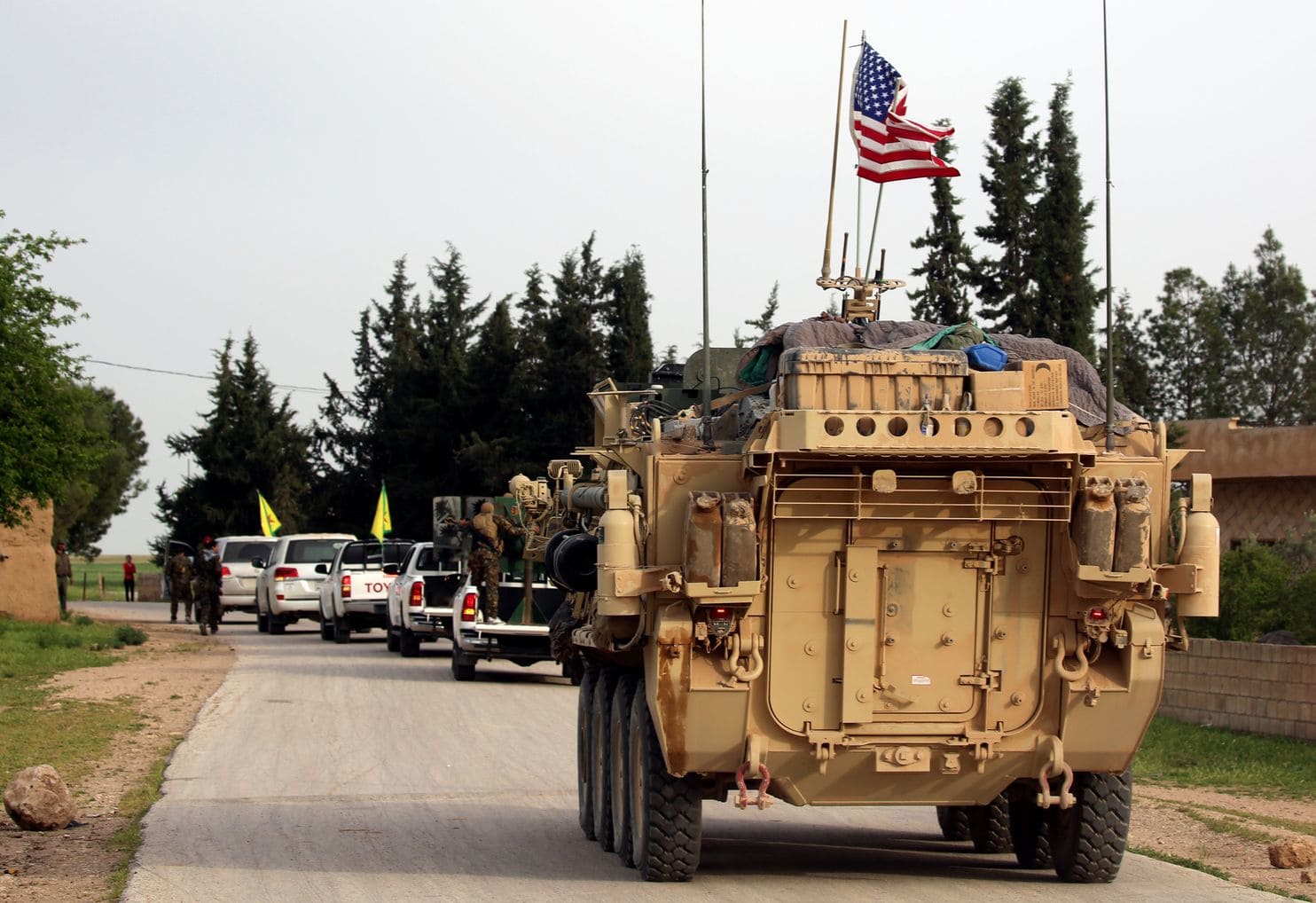How the US Can Work with Israel in Syria Without Putting More Boots on the Ground

Photo credit: Delil Souleiman/AFP/Getty Images
President Trump’s decision to keep several hundred troops in Syria is a welcome one. But it remains largely defensive, merely preventing the situation from worsening: the return of ISIS; Turkey overrunning our Kurdish partners; or greater Iranian expansion.
Israel alone is actively working to improve conditions in Syria, embarking on a new strategy to expel Iran by increasing pressure on Damascus. The United States can help the Israeli effort without putting additional American boots on the ground.
For several years, Israel has waged a concerted and increasingly public campaign to deny Iran’s most ambitious goals in Syria: a significant upgrade to Hezbollah’s arsenal and establishment of a forward operating base against Israel and Jordan. Israel has conducted hundreds of strikes in Syria against Iranian arms convoys, bases, missile defenses, precision missile factories, and even personnel.
Nevertheless, there is a limit to what Israel can accomplish. It might deny Tehran some objectives, but it cannot remove Iran’s presence entirely.
That is why, as senior security officials told me on a recent visit, Israel has recently adopted a new approach to pushing Iran out of Syria. In addition to continuing to target Iranian assets directly, Israel’s new strategy focuses on pressuring Bashar Assad to evict Iran from his territory.
The calculation is that Assad can force Iran out if he thinks its presence is no longer serving his interests. Assad, Israel is betting, ultimately wants to put this conflict behind him, normalize Syria, legitimize his own rule internally and internationally, and attract foreign economic support and investment. If Iranian entrenchment in Syria becomes an obstacle to his regime’s stabilization and normalization, Assad might be willing, with Russian assistance, to push Iran out.
Thus, Israel’s strategy has gradually expanded to target Assad’s assets. For example, in January, Israel attacked Iranian weapons warehouses near the Damascus airport. The strike eliminated those weapons, but also demonstrated to Assad how disruptive Israel’s campaign against Iran could be to Syrian daily life. Some Israeli officials believe this strategy is already paying dividends, forcing Iran to move its weapons supply center from the Damascus airport to an isolated airbase deeper in Syria’s interior.
Similarly, Iran’s al-Quds Forces, the vanguard of its foreign aggression, has largely moved its center of operations from Syria to Iraq. This only compounds the importance of the continued U.S. military presence in Iraq and the border crossing into Syria around al-Tanf.
Israel’s growing pressure on Assad also pressures Russia, which considers stability of the Alawite regime as a preeminent interest. Israel’s ultimate lever with Assad and Russia is its ability to knock out the leadership of the regime; a highly risky gambit for sure, Israel keenly learned the risks of regime change in the 1982 Lebanon War, but one of which Israel is nevertheless capable.
Israel did not seek Assad’s removal when the civil war broke out in 2011. Israel appreciated that the Syrian border had remained quiet during four decades of Assad rule, first father and then son. And Israel preferred a central government, a return address to hold accountable, over the chaos of dissolution. But Israel became alarmed when the bloody Assad regime’s survival came at the price of ever greater Iranian entrenchment and brutality, making an Iran-Israel conflict more likely, especially as Iran continues to work on its nuclear program. Now, Israel seeks to turn Iran’s victory in securing the Assad regime against it.
Notably, while limiting, Israel is not waging its campaign against Iran, Assad or Hezbollah with boots on the ground, which should signal to U.S. policymakers that our debate over troop deployment is misplaced, and should focus instead on what we intend to do with all our assets in the region.
The U.S. should do everything in its power to ensure Israel’s success in its growing confrontation with Iran, which serves U.S. interests, and those of our other Sunni Arab allies.
The U.S. can boost Israel’s capabilities by front-loading the $38 billion in military assistance to Israel rather than spacing it equally over a decade, improving U.S.-Israeli intelligence sharing, and updating the pre-positioned U.S. munitions in Israel that the latter can access in an emergency. The U.S. can bolster its own position and Israeli deterrence by homeporting Aegis-equipped missile defense destroyers in the Israeli port of Haifa, provided Israel first addresses its China problem. Finally, the United States should make clear to Russia it fully supports Israeli strikes in Syria.
Vice President Mike Pence correctly asked in Europe recently for our allies to help deal with Iran. But it would be more advantageous to look to Israel and support its efforts in Syria to roll back Iran’s dangerous expansion, as well as prepare for a greater confrontation with Iran.
Originally appeared in The Washington Examiner on March 17, 2019